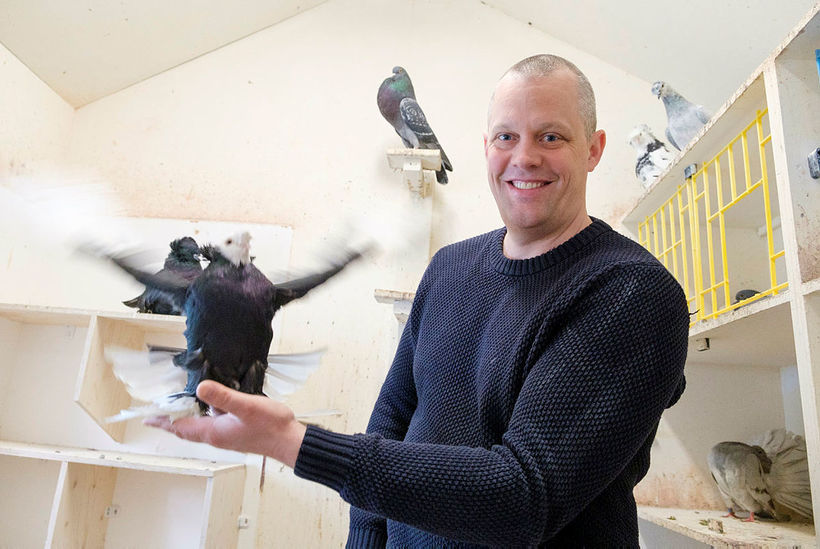Bait, Status Symbol, Messenger
Keeping doves used to be a status symbol in Iceland. Tumi Kolbeinsson, a dove enthusiast, who recently published a book in Icelandic about the birds, would like to see them in every municipality. In an interview with Kristín Heiða Kristinsdóttir in Morgunblaðið, Tumi reveals many interesting facts about doves.
“I believe municipalities should reserve areas where people can keep doves,” he states. “It’s a healthy hobby, which demands being outdoors, and it allows adults and children to do something together, which helps your social development. They can be responsible for taking care of the birds and strive for success in breeding them for looks or for flying.”
In his book, Dúfnaregistur Íslands (meaning Iceland’s Dove Register), Tumi details the multiple roles doves have played throughout history. The first reliable account about doves in Iceland dates back to 1666, in a work by Þórður Þórðarson, bishop in Skálholt.
“Documents from 1750 tell of falcon hunters bringing doves to the country to use as bait, but falcon hunting existed in Iceland as early as the tenth century, so we can assume doves came here long before [1750] with such hunters.”
He adds that for well-to-do people in Iceland, having doves used to be a status symbol. “Keeping foreign, colorful birds was considered posh. Danish merchants who lived here kept doves, and dove meat was served on special occasions as late as the beginning of the 20th century.” Tumi describes dove meat as very healthy and rich in iron.
He describes the large role doves played in both World Wars. They even had a role in Iceland during World War II. “Here, on Öskjuhlíð hill [in Reykjavík], a large house was built for the homing doves of the British military - three groups of doves at the peak of the operation. They would conduct six to eight missions a day. There were homing doves onboard all aircraft, in case radio equipment failed and message had to reach its destination.”
In war, some doves have saved hundreds of lives by bringing messages in time, Tumi states. They have also carried numerous love letters.
Tumi himself breeds doves in his back yard in the Bústaðahverfi neighborhood in Reykjavík.








